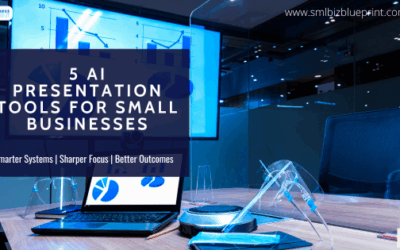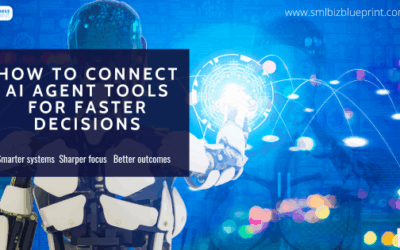Technical SEO is the invisible engine that powers your website’s search performance. It’s the backbone of discoverability, from crawlability and indexing to speed, structure, and error resolution.
But here’s the problem: most technical SEO tasks are time-consuming and complex, and require development knowledge.
Enter AI.
AI-powered tools are transforming technical SEO by automating audits, prioritising issues, predicting performance risks, and turning complex data into simple, actionable insights.
This guide highlights 6 AI-powered tools for technical SEO and site analysis that help businesses—especially small teams—maintain fast, healthy, and optimised websites.

#1 Screaming Frog + ChatGPT Integration
Overview
Screaming Frog is a leading website crawler that digs deep into technical issues—from broken links to duplicate content and redirect loops. While powerful on its own, integrating it with ChatGPT unlocks an entirely new level of analysis.
Key Features:
Custom crawl configurations
In-depth SEO audits
Exportable data for AI processing
ChatGPT-compatible output formatting
AI Angle:
Use ChatGPT to process and summarise large crawl reports, generate checklists, or create action plans based on Screaming Frog’s export.
Best For:
Diagnosing crawl issues, scaling audits, and automating analysis
Use Case:
After exporting crawl data, prompt ChatGPT to highlight top-priority fixes, such as pages with high internal link waste or duplicate meta tags.
Pros:
Highly customisable and flexible
Great value for power users
Works well with GPT for analysis automation
Cons:
Not beginner-friendly
Requires manual export and setup for AI integration
#2 Sitebulb
Overview:
Sitebulb offers rich visualisations and in-depth technical SEO auditing. Its layered reporting makes complex issues easy to understand.
Key Features:
Crawl maps and link diagrams
Audit scoring and prioritisation
JavaScript rendering analysis
Structured data validation
AI Angle:
Sitebulb uses AI-style scoring to prioritise technical issues by impact and urgency, guiding your next move.
Best For:
Agencies and technical SEOs needing clarity at scale
Use Case:
Quickly identify redirect chains, rendering issues, and Core Web Vitals problems, all visualised in easy-to-follow reports.
Pros:
Excellent visual reporting
Clear prioritisation of issues
Strong for JavaScript-heavy sites
Cons:
Heavier resource usage during scans
Not cloud-based (requires download)
Ready to level up your business?
Sign up for our newsletter and get expert tips delivered weekly.
#3 SEMrush Site Audit + AI Writing Assistant
Overview:
SEMrush’s Site Audit tool offers a detailed crawl across over 140 technical SEO checkpoints, from HTTPS to mobile performance. With the AI Writing Assistant, you also gain on-page SEO improvements in real-time.
Key Features:
Broken links, redirect errors, crawl depth issues
HTTPS, Core Web Vitals, mobile-friendliness
Integration with SEMrush AI copy tools
AI Angle:
Use the AI assistant to transform audit data into dev-ready fix briefs or optimised copy.
Best For:
Marketing teams and content-focused SEOs
Use Case:
Run a weekly audit and use the AI assistant to generate reports for developers and writers.
Pros:
All-in-one SEO suite
Strong UI and usability
Integrated with keyword and content tools
Cons:
Can be expensive for small teams
Limited real-time alerting
#4 ContentKing
Overview:
Unlike traditional crawlers, ContentKing runs in real time. It continuously monitors your site and alerts you to critical changes the moment they occur.
Key Features:
Real-time SEO monitoring
Version tracking
Custom alert setup
Team collaboration tools
AI Angle:
Predictive analysis helps detect issues before they impact rankings, and AI prioritisation ensures teams fix the most urgent tasks first.
Best For:
Always-on SEO monitoring for medium to large sites
Use Case:
Get notified instantly if a no-index tag is accidentally added to a live page.
Pros:
True real-time monitoring
Easy collaboration across teams
Alerts for critical changes
Cons:
Higher cost compared to basic crawlers
Limited in-depth audit history
#5 Deepcrawl (Lumar)
Overview:
Built for large and complex sites, Deepcrawl (now Lumar) offers comprehensive health diagnostics focusing on scalability.
Key Features:
Scalable crawling for large sites
JavaScript SEO diagnostics
Core Web Vitals and UX Audits
Integration with Google Search Console
AI Angle:
Machine learning models highlight trends, anomalies, and hidden issues across vast site architectures.
Best For:
Enterprise SEO teams and technical leads
Use Case:
Run audits across multiple subdomains and get AI-prioritized insights to reduce load times and improve indexability.
Pros:
Scales well for enterprise websites
Excellent trend and anomaly detection
Deep integration with technical SEO metrics
Cons:
Steep learning curve
Expensive for smaller teams
Don’t miss a beat in your business growth journey!
Join Pulse and stay ahead with expert tips and actionable advice every month.
Subscribe to Pulse Today
#6 Hexometer
Overview:
Hexometer is an AI-powered digital health monitor for your site. It tracks over 280+ website performance and security metrics automatically.
Key Features:
Page speed and uptime tracking
Security vulnerability alerts
Broken links and metadata analysis
Smart prioritisation engine
AI Angle:
Hexometer uses AI to detect anomalies, assign urgency levels, and summarise findings in actionable reports.
Best For:
Small businesses and e-commerce sites needing low-maintenance SEO health monitoring
Use Case:
Schedule automated weekly audits and receive AI-generated summaries showing the most urgent fixes.
Pros:
Simple and intuitive interface
Great for non-technical users
Broad monitoring scope (SEO + site health)
Cons:
Lacks deep crawl diagnostics
More generalist than SEO-specific in focus
Conclusion
Technical SEO doesn’t have to be overwhelming.
With the right AI tools, you can automate your audits, uncover hidden issues, and prioritise the fixes that actually move the needle.
Whether you’re a solo marketer or managing a large site, these tools can help you stay ahead of performance risks, indexing issues, and algorithm shifts.
FAQ
Q1: What is technical SEO?
A1: Technical SEO refers to website and server optimisations that help search engines crawl and index your site more effectively.
Q2: How does AI help with technical SEO?
A2: AI streamlines audits, highlights priorities, predicts performance issues, and summarises complex data for quicker decision-making.
Q3: Which AI SEO tool is best for real-time monitoring?
A3: ContentKing is ideal for real-time alerts and ongoing SEO surveillance.
Q4: Are these tools suitable for small businesses?
A4: Yes. Tools like Hexometer and Screaming Frog are accessible and highly effective for lean teams.
Q5: Can AI tools replace manual SEO audits?
A5: They won’t fully replace human expertise, but they dramatically reduce the time needed for analysis and help surface issues faster.
Q6: How often should I run a technical SEO audit?
A6: Monthly at minimum—weekly for dynamic or high-traffic sites.
Q7: Do I need coding knowledge to use these tools?
A7: Not necessarily. Many tools offer user-friendly dashboards, although technical understanding enhances their utility.
Other Articles
Is Your Cold Email Strategy Outdated? Here’s How AI Fixes It




